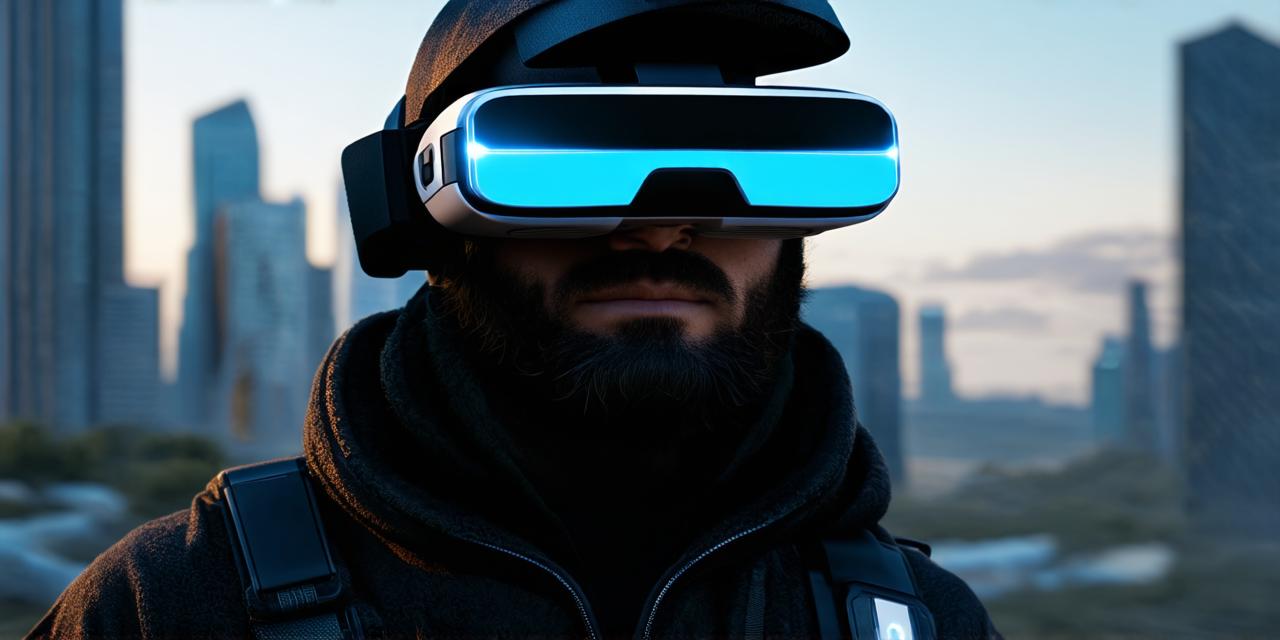VR Apps: A Brief Overview
Virtual reality apps can be divided into several categories based on their purpose. Some of the most common types of VR apps include:
- Entertainment: These are apps that are designed to provide entertainment to users. They may include games, movies, or other interactive experiences.
- Education: These are apps that are designed to educate users about a particular topic or subject. They may include virtual tours of museums, historical sites, or other educational experiences.
- Productivity: These are apps that are designed to help users work more efficiently and effectively. They may include virtual meeting rooms, collaborative workspaces, or other productivity tools.
- Training: These are apps that are designed to provide training for specific skills or tasks. They may include simulations of real-world scenarios, such as flight training or medical training.
Examples of Popular VR Apps
Now let’s take a look at some examples of popular VR apps in each of these categories:
- Entertainment:
- Beat Saber: This is a music rhythm game that allows users to slash through blocks with light sabers set to the beat of music. It is available on the Oculus Quest 2 and other VR platforms.
- Half-Life: Alyx: This is a virtual reality game based on the Half-Life series of games. It is available exclusively on the Valve Index and other high-end VR systems.
- Education:
- Google Expeditions: This is an app that allows teachers to take virtual field trips with their students. It is available on Android devices and can be used with a VR headset or a regular smartphone.
- Tilt Brush: This is a painting app that allows users to create 3D paintings in virtual reality. It is available on the Oculus Quest 2 and other VR platforms.
- Productivity:
- Virtual Office: This is an app that allows users to work remotely in a virtual office environment. It is available on the Oculus Quest 2 and other VR platforms.
- Rec Room: This is a social platform for virtual reality that allows users to hang out with friends and participate in games and activities. It is available on the Oculus Quest 2 and other VR platforms.
- Training:
- Air Force Flight Simulator: This is a flight simulation training program used by the United States Air Force. It is available exclusively on high-end VR systems.
- Surgical Realities: This is a surgical training app that allows medical students and professionals to practice procedures in a virtual reality environment. It is available on the Oculus Quest 2 and other VR platforms.
The Benefits of VR Apps
Virtual reality apps offer many benefits to users, including:
- Immersive experiences: VR apps allow users to fully immerse themselves in an environment, which can lead to a more engaging and memorable experience.
- Improved learning: VR apps can be used to provide education and training in a safe and controlled environment, which can lead to better learning outcomes.
- Increased productivity: VR apps can help users work more efficiently by providing a virtual workspace that is free from distractions.
- Enhanced creativity: VR apps, such as Tilt Brush, allow users to create 3D art and design in virtual reality, which can lead to enhanced creativity and innovation.
The Future of VR Apps
Virtual reality technology is constantly evolving, and we can expect to see even more exciting and innovative apps in the future. Some trends to watch include:
- Integration with other technologies: As virtual reality continues to grow, we can expect to see it integrated with other technologies, such as augmented reality, artificial intelligence, and machine learning.
- Increased accessibility: As VR technology becomes more affordable and user-friendly, we can expect to see it become more accessible to a wider range of users, including those with disabilities.
- New forms of entertainment: We can also expect to see new forms of entertainment emerge in virtual reality, such as virtual concerts, live events, and immersive experiences that were previously impossible.
Summary
Virtual reality apps are a growing and exciting field, offering users many benefits and opportunities for learning, creativity, and productivity. As the technology continues to evolve, we can expect to see even more innovative and engaging apps in the future. Whether you’re an entertainment enthusiast or a student looking for a new way to learn, virtual reality apps have something for everyone.
